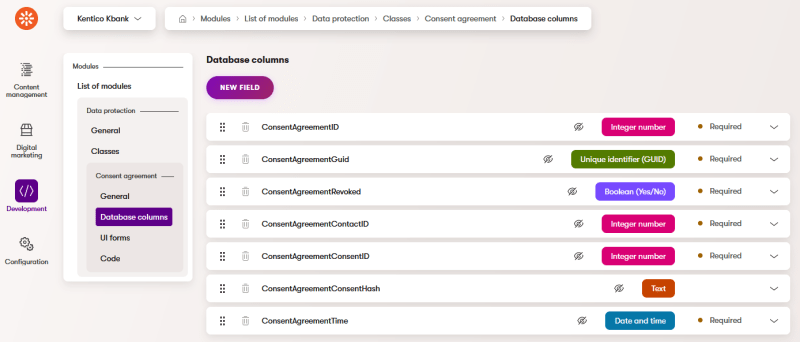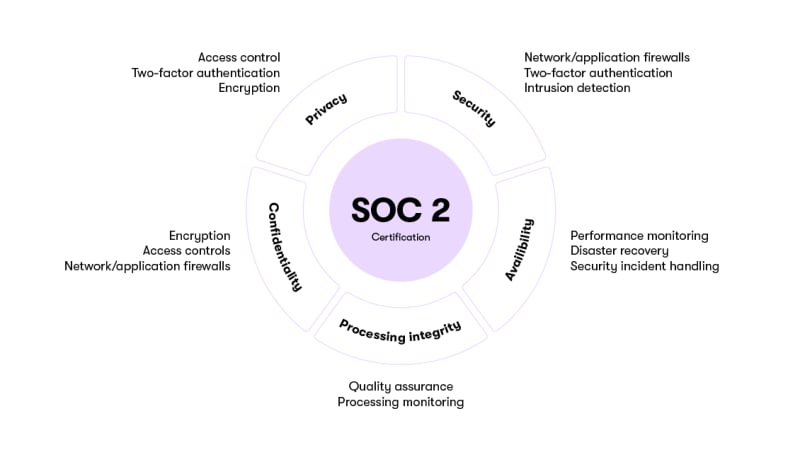Following on from our previous chapters about the importance of customer data and how we can leverage it to create personalized customer experiences, this chapter will explore data management, the most important data regulations to be aware of, and how to look after your customers’ data.
What is data management?
Data management is the process of collecting, storing, organizing, maintaining, and utilizing data securely and efficiently. It involves the management of both structured and unstructured data, such as customer data, financial data, product data, and operational data.
Effective data management ensures that data is correct, consistent, and accessible to those who need it. It also involves implementing appropriate security measures to protect data from unauthorized access, theft, or loss. Data management is essential for organizations to make informed business decisions, comply with regulatory requirements, and provide a seamless customer experience.
Key components of data management include:
- Data governance: The establishment of policies, procedures, and standards for data management, including data quality, data security, and data privacy.
- Data integration: The integration of data from different sources and systems to provide a unified view of data.
- Data quality: The management of data accuracy, completeness, consistency, and timeliness.
- Data security: The implementation of security measures to protect data from unauthorized access, theft, or loss.
- Data privacy: The protection of sensitive data and compliance with data privacy regulations.
Effective data management is critical for organizations to make informed decisions, drive business growth, and provide a seamless customer experience.
If you’re going to do all the marvelous things you do (or plan to do) with personalization, then you’re going to need a robust data management strategy and the technology to match.
Let’s explore the top data privacy laws you’ll have to consider:
What are the most important data privacy laws?
It is important for companies to ensure that they are collecting customer data ethically and transparently, and to comply with relevant data privacy laws and regulations.
There are several data privacy laws that are important for organizations to be aware of, especially if they collect and manage personal data. Here are some of the most important ones:
- General Data Protection Regulation (GDPR): The GDPR is a regulation in the European Union (EU) that sets out requirements for the collection, processing, and storage of personal data. It gives individuals more control over their personal data and requires organizations to obtain consent for data collection and usage, provide transparency around data processing, and implement appropriate security measures to protect data.
- California Consumer Privacy Act (CCPA): The CCPA is a law in the state of California that gives consumers the right to know what personal information businesses collect about them, the right to request that their data be deleted, and the right to opt-out of the sale of their personal information. It also requires businesses to provide transparency around data collection and usage, and to implement appropriate security measures to protect data.
- Health Insurance Portability and Accountability Act (HIPAA): HIPAA is a US federal law that sets out requirements for the protection of individuals' health information. It applies to healthcare providers, health insurers, and other organizations that handle health information. It requires organizations to implement appropriate security measures to protect health information, provide individuals with access to their health information, and obtain consent for the use and disclosure of health information.
- Personal Information Protection and Electronic Documents Act (PIPEDA): PIPEDA is a Canadian law that sets out requirements for the collection, use, and disclosure of personal information by organizations in the private sector. It requires organizations to obtain consent for data collection and usage, provide transparency around data processing, and implement appropriate security measures to protect data.
- Children's Online Privacy Protection Act (COPPA): COPPA is a US federal law that sets out requirements for the protection of children's personal information online. It requires websites and online services that are directed to children under the age of 13 to obtain parental consent before collecting personal information, and to provide transparency around data collection and usage.
Compliance with these and other data privacy laws is essential for organizations to protect individuals' personal information, maintain trust with their customers, and avoid legal and financial penalties for non-compliance.
Consent management: keeping your customer data safe
Ensure compliance with data protection laws by implementing a transparent and well-managed consent management system that maximizes the use of valuable customer information across your entire platform while still maintaining compliance even with the most rigorous data protection regulations, including GDPR and CCPA.
A good integrated digital experience platform will make it effortless for you to keep track of consents and to ensure:
- you're only communicating with customers who have given their consent
- customer data remains secure and protected
- you can keep a list of specific customers' consent and archive customer history
- you can leverage as many types of consent as necessary
- visitors can give separate permissions for different purposes
- you're always in compliance with the latest relevant regulations
- personal data is available in a machine-readable format
- the right of a customer to access their data and the right to be forgotten

Managing consents in Xperience by Kentico admin interface.
Proving you’re serious about data privacy
A great way to prove to your customers that you take their data privacy and security seriously is to choose a digital experience platform from a vendor with SOC compliance.
SOC compliance refers to a series of standards developed by the American Institute of Certified Public Accountants (AICPA) for evaluating and reporting on the effectiveness of an organization's internal controls and processes related to data security, availability, processing integrity, confidentiality, and privacy. It is important for organizations that handle sensitive data or provide services to other companies, as it provides assurance that the organization has effective controls in place to protect data and maintain operational integrity.
There are three types of SOC compliance reports:
- SOC type 1: Focuses on controls over financial reporting and is primarily used by organizations that provide services to other companies that are subject to financial reporting requirements.
- SOC type 2: Focuses on controls over security, availability, processing integrity, confidentiality, and privacy, and is primarily used by organizations that provide services that involve storing, processing, or transmitting sensitive data.
- SOC type 3: Provides a general overview of an organization's controls related to security, availability, processing integrity, confidentiality, and privacy, and is intended for public distribution.
To achieve a SOC compliance certificate, the vendor of your technology needs to undergo an assessment by a certified public accountant (CPA) or a third-party auditor.

Build trust and transparency
With the rise of data breaches and privacy concerns, customers have become more aware of the importance of data protection and expect businesses to prioritize it. Compliance with data laws is not only a legal obligation but also an essential component of building and maintaining trust with customers.
Failure to comply with data laws can result in significant financial and reputational damage, as well as the loss of customer trust. Therefore, effective data management and compliance with data laws are critical for businesses to establish strong customer relationships and ensure the long-term success of their operations.
A DXP with built-in data protection features can help organizations in their data privacy efforts by providing tools for data encryption, access control, and user consent management. These features can help organizations comply with data privacy regulations and maintain customer trust by ensuring the security and privacy of their data.

